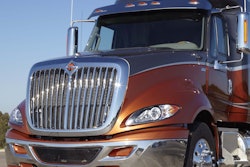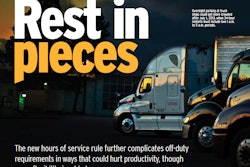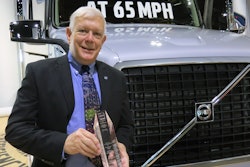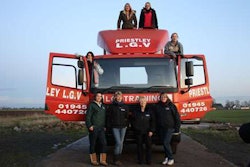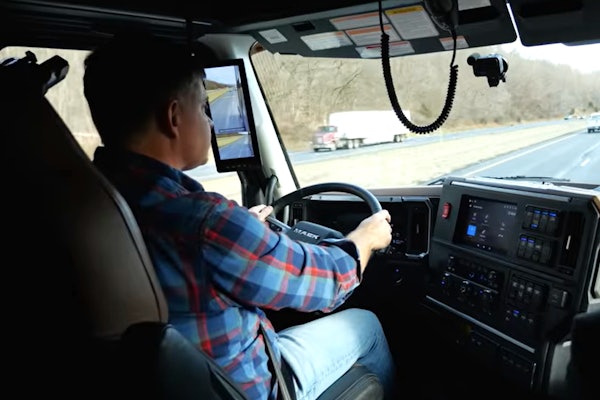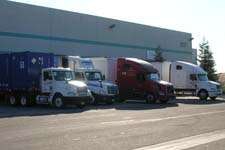 Trucks at a Northern California warehouse.
Trucks at a Northern California warehouse.California’s Air Resources Board will pursue emergency rulemaking to fix an oversight that would prevent fleets with 21 or more trailers from electing to use the board’s phased-in compliance schedule.
CARB’s 2009 Tractor-Trailer Greenhouse Gas regulation included new rules for 53-foot or longer dry van or reefer trailers that are model year 2010 or older. The board’s compliance date depends upon fleet size, but affects all trucks and trailers operating even part of the time in California.
The regulation classifies large fleets as carriers with 21 or more trailers operating in California, regardless of the trailer’s base state. These fleets must be compliant by Jan. 1, 2013, or have registered by last July for Option 2, which allows a phase-in schedule through 2016.
Fleets with 20 or fewer trailers have until July 1 to register for a more flexible compliance option. Through 2015, California offers one three-day pass per fleet per year for non-compliant trailers.
CARB’s staff received substantially fewer requests than expected from large fleets for the phased-in option and considered companies might be unaware of the regulation. With compliance costs per trailer estimated at $1,900 to $4,200 and a continued economic downturn, the board extended the Option 2 deadline last October.

However, CARB did not update the July 1, 2011, deadline for affected fleets to provide Option 2 plan information. Consequently, the board will ask California officials for permission to proceed with emergency rulemaking on Feb. 29, it said.
The proposed rulemaking would change the registration deadline for Option 2 to June 1, which also would be the new deadline under this plan to meet the first compliance hurdle of having 20 percent of fleet trailers compliant.
CARB is not seeking to change another amendment approved last October and effective Jan. 11 for both large fleet plans. It allows companies to report compliance retrospectively on an annual basis rather than submitting a one-time plan that covered the entire phase, which would have had to been sent to the board by July 1, 2010.
This rule is one result of the Global Warming Solutions Act of 2006, or AB 32, which directed CARB to reduce greenhouse emissions by 2020. This regulation requires aerodynamic technologies and low rolling resistance tires to decrease drag and improve fuel economy.
To provide comments and read the emergency proposal click here. Call the board clerk at (916) 322-5594 for additional assistance.
